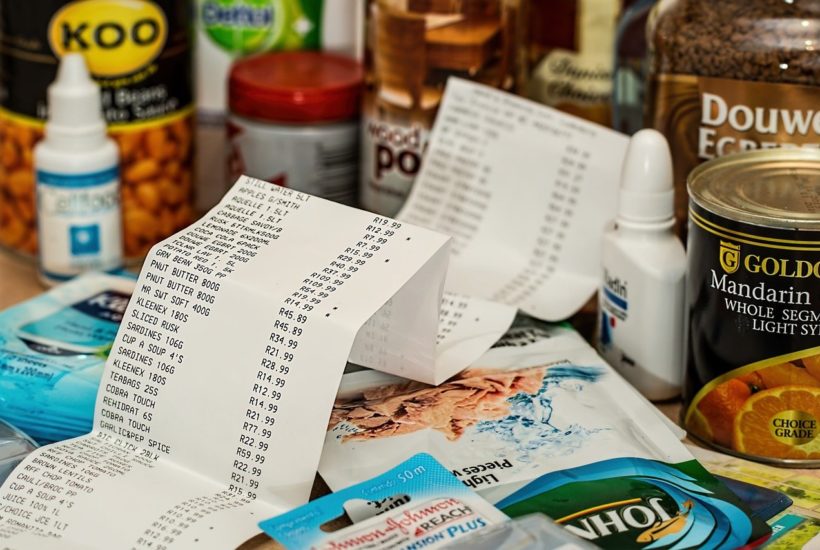Featured
Consumption Drop in the Third Wave of COVID-19 Surprises the Market
Spanish consumer behavior was an excellent predictor of the impact of COVID-19 during the first two waves, in April and between October and November 2020. Spaniards did not make massive food purchases before the third wave, even reducing food consumption with respect to 2019. This is why, comparatively, a decrease in consumption is reflected during the months of November, December and early January.

A study by the Barcelona-based company Optimus Price, dedicated to artificial intelligence software applied to pricing, shows that the COVID-19 pandemic had a great impact on the consumption pattern of Spaniards. This alteration presented great variety when comparing the first two waves with the third.
The report, which analyzes the sales of food products in four large supermarket chains between January 2019 and April 2021 reflects that, while Spaniards stockpiled food during the first and second waves of COVID-19, during the Christmas period they reduced consumption significantly.
Read more on the subject and find the latest market updates with the business news app Born2Invest.
Impact of the first and second waves
Spanish consumer behavior was an excellent predictor of the impact of Covid-19 during the first two waves, in April and between October and November 2020.
Prior to the first wave, there was a record sales peak in supermarkets, exceeding the annual trend by 70%. This peak was concentrated in the week of March 9-15, the week prior to the start of home containment.
During said confinement, sales stabilized, albeit at higher levels than in 2019. That indicates that Spaniards decided to fill their food pantries, while waiting to observe the evolution of this global pandemic. Likewise, it is estimated that the fall in catering consumption caused the need to buy more food for domestic consumption.
Similarly, in September 2020, sales records were broken again, presumably due to the political and communicative environment debating the need for a second containment. Sales doubled compared to the previous year.
Impact of the third wave
Spaniards did not make massive food purchases before the third wave, even reducing food consumption with respect to 2019.
This is why, comparatively, a decrease in consumption is reflected during the months of November, December and early January.
Carlos Fenollosa, CEO of Optimus Price and responsible for the study, says: “There are two main hypotheses that explain this behavior. On the one hand, consumers learned that it was not necessary to stockpile food, since the supply chains were guaranteed”.
The second argument, according to Fenollosa, was the reduction in Christmas lunches and dinners. “Many Spaniards decided not to eat with the family during the vacations, or else they reduced the number or duration of gatherings.”
“That is, they stopped buying all the usual food for these dates, simply because there were fewer meals with family and friends,” Fenollosa continues. “This did not prevent the third wave, but it is important to understand that it could have been much worse, and the data show that many people stayed at home during Christmas, in an exercise of collective responsibility.”
These findings confirm the responses to the survey conducted by the OCU in December 2020, where 6 out of 10 Spaniards said they would spend less than the previous year.
Moreover, compared to 2019, only half of the population stated that they planned to participate in family meals outside of the convivial bubble.
Back to normal in 2021
The year 2020 was atypical for food retailers, not only in absolute values but also when comparing sales against the previous year. During the whole year, an additional 20% of food was purchased compared to 2019. By periods, the main differences are reflected during the first wave, progressively, as well as a large peak during the month of September.
In fact, starting in October 2020, and up to the data analyzed in March 2021, the pattern of food sales is similar to 2019.
This is consistent with the analysis performed with data from other sectors, where an estimate of sales and demand consistent with data from previous years is observed.
Thus, Optimus Price’s artificial intelligence predictive algorithms already consider 2020 as a historical anomaly, and 2021 is presented following the patterns of the pre-Covid period.
Fenollosa explains that some of these results are surprising: “We did this study to see the impact of the three waves on consumption, and to see if it corresponded with our feelings on a personal basis,” he continues, “When studying the third wave, we were surprised to see how society had learned from the first two, and did not think it necessary to stockpile food.”
With a good part of the population already vaccinated, and the collective learnings from this pandemic, sales in the food sector have already returned to the same patterns as 2019. Fenollosa concludes, “We could say that, judging by consumer behavior, the pandemic is over.”
__
(Featured image by stevpb via Pixabay)
DISCLAIMER: This article was written by a third party contributor and does not reflect the opinion of Born2Invest, its management, staff or its associates. Please review our disclaimer for more information.
This article may include forward-looking statements. These forward-looking statements generally are identified by the words “believe,” “project,” “estimate,” “become,” “plan,” “will,” and similar expressions. These forward-looking statements involve known and unknown risks as well as uncertainties, including those discussed in the following cautionary statements and elsewhere in this article and on this site. Although the Company may believe that its expectations are based on reasonable assumptions, the actual results that the Company may achieve may differ materially from any forward-looking statements, which reflect the opinions of the management of the Company only as of the date hereof. Additionally, please make sure to read these important disclosures.
First published in elEconomista.es, a third-party contributor translated and adapted the article from the original. In case of discrepancy, the original will prevail.
Although we made reasonable efforts to provide accurate translations, some parts may be incorrect. Born2Invest assumes no responsibility for errors, omissions or ambiguities in the translations provided on this website. Any person or entity relying on translated content does so at their own risk. Born2Invest is not responsible for losses caused by such reliance on the accuracy or reliability of translated information. If you wish to report an error or inaccuracy in the translation, we encourage you to contact us.

-

 Crypto2 weeks ago
Crypto2 weeks agoBitcoin Steady Near $68K as ETF Outflows and Institutional Moves Shape Crypto Markets
-

 Crypto14 hours ago
Crypto14 hours agoMiddle East Tensions Shake Crypto as Bitcoin and Ethereum Slip
-

 Business1 week ago
Business1 week agoDow Jones Stalls Near Record Highs as Inflation-Fueled Rally Awaits Next Move
-

 Fintech5 days ago
Fintech5 days agoFirst Regulated Blockchain Stock Trade Launches in the United States














